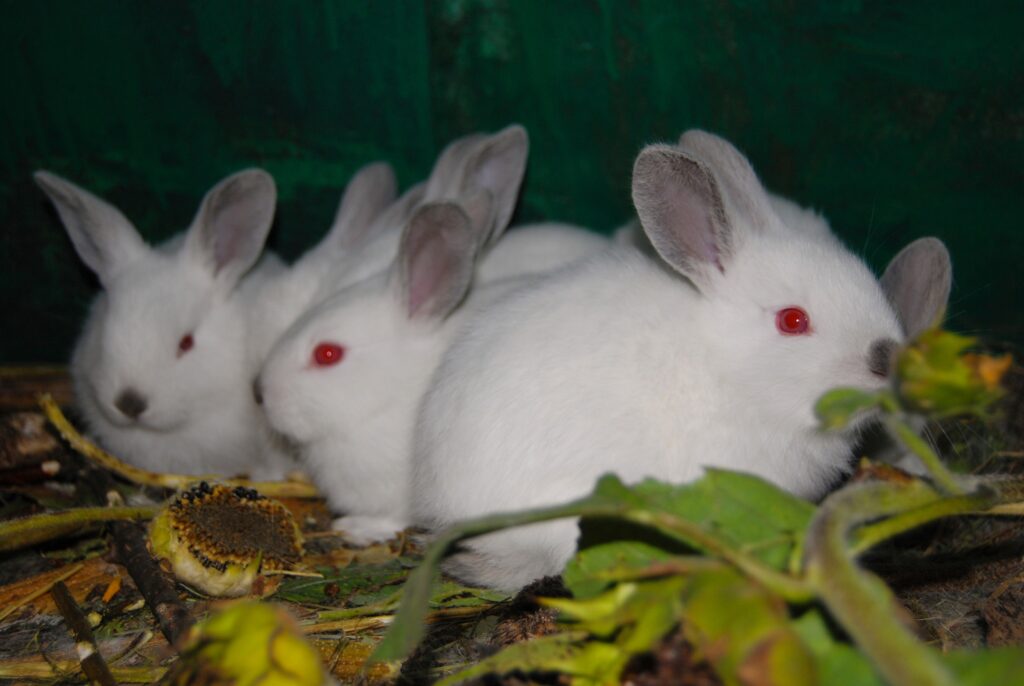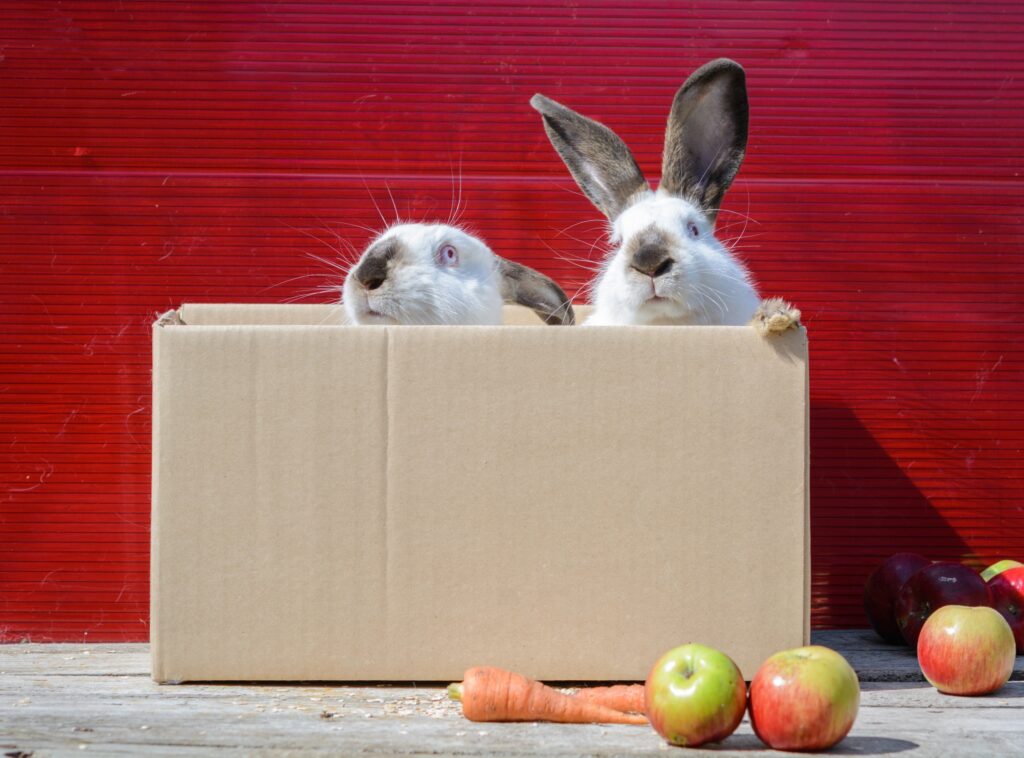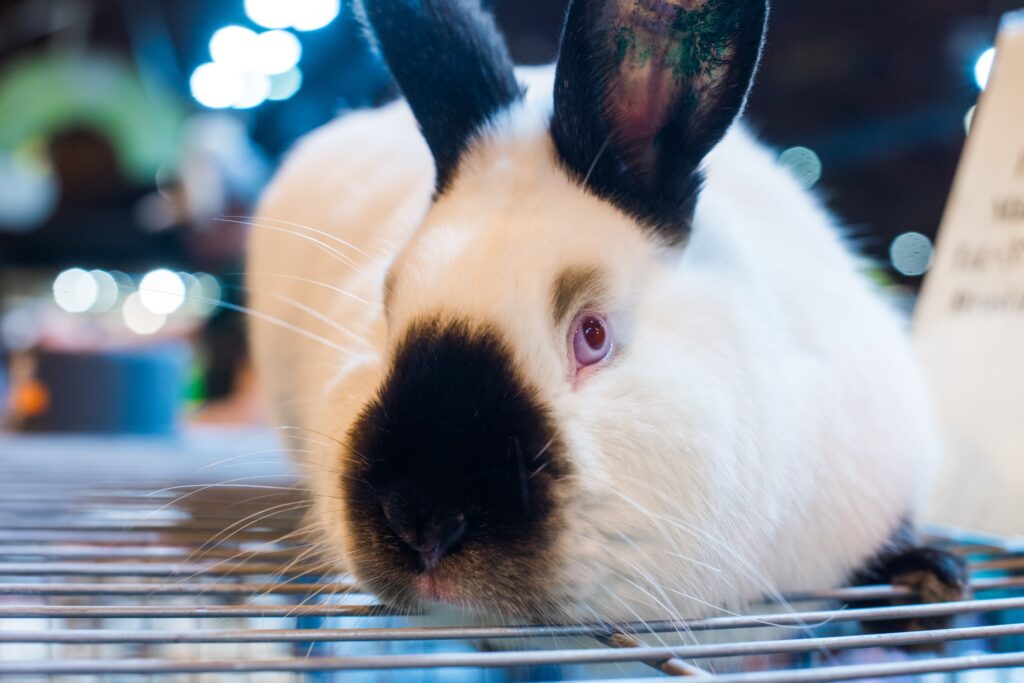What to Feed Your Californian Rabbit: A Comprehensive Guide
Californian rabbits are an adorable breed of domestic rabbits that make great pets. These rabbits are known for their friendly personality, soft fur, and playful nature. However, as a responsible pet owner, providing your Californian rabbit with a healthy and balanced diet is essential to ensure they live a long and happy life.

One of the most common questions Californian rabbit owners ask is, “What can I feed my rabbit?” It’s crucial to know that rabbits have a unique digestive system and require a specific diet to maintain their health. A healthy diet for Californian rabbits should consist of hay, fresh vegetables, and small pellets. In this article, we will explore the different types of food you can feed your Californian rabbit and provide some tips on creating a balanced diet for your furry friend.
Feeding Basics
When it comes to feeding Californian rabbits, it is essential to provide them with a balanced diet that meets their nutritional needs. A balanced rabbit diet comprises hay, pellets, fresh vegetables, and fruits.
Hay
Hay is essential to a rabbit’s diet as it provides the necessary fiber to maintain a healthy digestive system. Timothy hay, chard grass hay, or meadow hay are good options. Rabbits should have access to hay at all times, as it is the foundation of their diet.
Pellets
Pellets are another essential component of a rabbit’s diet. However, choosing high-quality pellets with the right balance of fiber, protein, and fat is important. Pellets should make up no more than 5-10% of a rabbit’s diet.
Fresh Vegetables
Fresh vegetables are an excellent source of vitamins and minerals for rabbits. Introducing new vegetables slowly and in small quantities is recommended to avoid digestive upset. A good rule of thumb is to provide at least two cups of fresh vegetables per six pounds of body weight daily.
Some examples of vegetables that are safe for rabbits to eat include:
- Carrots
- Broccoli
- Kale
- Spinach
- Cilantro
- Parsley
Fruits
Fruits should be given to rabbits in moderation due to their high sugar content. A good rule of thumb is to limit fruit intake to one to two tablespoons per six pounds of body weight per day.
Some examples of fruits that are safe for rabbits to eat include:
- Apples
- Blueberries
- Pineapple
- Papaya
- Mango
- Strawberries

Feeding Californian rabbits a balanced diet of hay, pellets, fresh vegetables, and fruits is essential for their health and well-being. By providing them with various foods in the right quantities, owners can ensure that their rabbits get the nutrients they need to thrive.
Treats
Californian rabbits enjoy a variety of treats. However, it is essential to feed them in moderation as too many treats can lead to digestive problems and obesity. A balanced diet should consist of hay, fresh vegetables, and a small amount of treats.
Some healthy treats for Californian rabbits include:
- Dried hay-based treats: These treats are the healthiest option for rabbits. Oxbow brand treats are a popular choice. These treats are high in fiber and low in sugar.
- Fresh fruits: Fresh fruits are also a great treat option for rabbits. However, they should be given in small amounts due to their high sugar content. Some examples of safe fruits include apples (without seeds), berries, bananas, and melons.
- Vegetables: Vegetables are a great source of vitamins and minerals for rabbits. Some safe options include celery, broccoli, carrots, and kale.
It is important to note that some fruits and vegetables can harm rabbits. For example, avocado, rhubarb, and potato leaves are toxic and should be avoided.
When feeding treats to a Californian rabbit, it is important to introduce them slowly and in small quantities. A sudden change in diet can cause digestive upset. Additionally, treats should be given as a supplement to a balanced diet, not as a replacement for hay or fresh vegetables.
In conclusion, treats can be a great way to bond with a Californian rabbit and provide some variety in their diet. However, it is crucial to feed them in moderation and choose healthy options.
Water
Water is essential for a Californian rabbit’s health and well-being. It is important to always provide clean, fresh water to your rabbit. A rabbit’s water bottle or bowl should be cleaned and refilled with fresh water daily.
When choosing a water bottle or bowl, ensure it is the appropriate size for your rabbit and securely attached to the cage to prevent spills. Monitoring your rabbit’s water intake is also important to ensure they are drinking enough.
In addition to providing water through a bottle or bowl, you can add water to your rabbit’s food. This can be especially helpful if your rabbit is not drinking enough water alone. You can add water to their pellets or mix some fresh greens with high water content, such as lettuce or cucumber.
It is important to note that rabbits should not be given too cold or too hot water. Room temperature water is ideal. Additionally, rabbits should not be given water treated with chemicals or additives like chlorine or fluoride. If you are unsure about tap water quality, consider using a water filter or providing your rabbit with bottled water.
Providing clean, fresh water to your Californian rabbit is crucial for their health and should not be overlooked.
Supplements
Supplements can be added to a Californian rabbit’s diet to ensure they get all the necessary nutrients. Here are some supplements to consider:
- Vitamin and mineral supplements: Rabbits can produce their own B and K vitamins, but they need vitamins A, D, and E in their diet. These vitamins can be added to their diet through supplements. It is important to not over-supplement, as this can harm the rabbit’s health. Consult with a veterinarian to determine the appropriate supplements for your rabbit.
- Salt licks: Salt licks can provide rabbits with the necessary minerals in their diet. However, choosing a lick specifically designed for rabbits is important, as some licks made for other animals may contain harmful additives.
- Fruit supplements: Fruits can be given to rabbits as a treat, but they should not make up a large portion of their diet. Fruits that are high in sugar should be given sparingly, as they can lead to dental problems and obesity. Some fruits that are safe for rabbits to eat include apples, bananas, berries, and melons.
It is important to remember that supplements should not replace a balanced diet of hay, fresh vegetables, and a small amount of pellets. Always consult with a veterinarian before adding supplements to your rabbit’s diet.
Conclusion

A Californian rabbit’s diet should primarily consist of high-quality hay like Timothy hay. Pellet feeds can be offered but should not be the primary feed choice. Vegetables can also be given as treats, but only in small amounts. It is essential to avoid feeding rabbits with fruits and vegetables that are high in sugar, as this can lead to digestive problems.
When selecting commercial rabbit feed, choosing a high-quality product with high fiber content and little fat is crucial. The protein serving should be between 16-18%. Experts recommend feeding rabbits with commercial feed to avoid the need for a salt lick.
It is also important to ensure that the rabbit has access to fresh and clean water at all times. The water should be changed regularly to prevent the growth of bacteria.